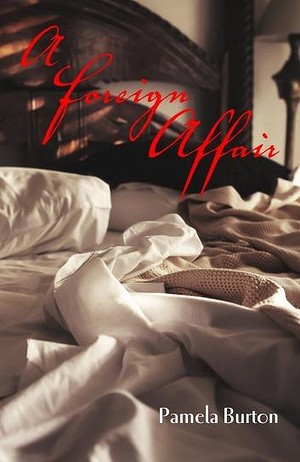From The Sydney Morning Herald:
A FOREIGN AFFAIR, by Pamela Burton. Ginninderra Press. $37.50.
REVIEWER: Alison Broinowski
The whole national capital of Australia could become a movie set if an enterprising director picks up this eminently filmable novel. In it, politicians and journos have their real names; clandestine meetings take place in cafes we all know; suburban streets and bush roads are recognisable. Then on a cold July night a sudden death outside the Yacht Club sends ripples way beyond Yarralumla. Jo, a progressive Australian National University academic, is researching “the unfair sex”, the bureaucracy’s resistance to women in senior positions and its hostility to men who seek to promote them. Jo farewells her Yugoslavian lover outside the Hyatt, then drives away and apparently shoots herself in the head. This is the hinge on which the novel swings – and swing it does in early 1990s Canberra. Young professional women are shaking the barricades and remaking the rules, the written ones at least. Their affairs, public and private, domestic and foreign, propel an investigation that is conducted with fixed phones, faxes and no email. Lake George still “glistens in the sun”. But people-smuggling, gun-running and Australian Security Intelligence Organisation malfeasance are rife in Canberra, so it is hardly out of date.
As a Canberra-born barrister, Pamela Burton is familiar with the scene. She established her reputation as an author with a biography of Judge Mary Gaudron and a forensic account of the 2009 Waterlow murders. In a forthcoming biography, she and her sister, Dr Meredith Edwards, a former deputy secretary of PM&C, will fill gaps in our knowledge about their mother Cecily and their father John Burton, who headed External Affairs from 1947 to 1950.
In Pamela’s first novel, Jo’s death is investigated by Brooke, a frizzy-haired, determined barrister who is fond of her dogs, cats and chooks, chess, good food and wine. Given to wearing a too-short skirt, fishnets and loud high heels, she is “a most unlikely-looking lawyer”. For Canberra readers, there are some great lines. The capital is “Kafka country”, Brooke warns Jo, where ASIO “has regularly ruined people’s careers for no better reason than having a Communist in the family”. Feminists in ASIO, says an ASIO man, are “likely to blow the whistle if someone nicks some paper clips and a biro”, and they are worse than terrorists to have around. Canberra is “a shadowy town. Spy city, that’s what it’s become”. How do the spooks decide what is secret? “It’s secret if we say so”. And ASIO always wins: “the bigger the stuff-ups, the greater is the need for more personnel to cover them up”. “If a brave prime minister says, ‘No more money’, a terrorist act will occur, accompanied by the head spook’s words ‘I told you so’.”
Brooke’s case takes her to murky Balkan places, and Burton’s research on the fragmentation of Yugoslavia and its impact on Serbs, Croatians and others vividly recalls that fraught period in Australia. Less authoritatively, she puts diplomats and consular officials all together in the Yugoslav Embassy and Consulate-General in Canberra, and gives them all DC plates. When the Attorney-General’s counsel seeks to suppress Jo’s book, The Unfair Sex, on national security grounds, Brooke argues for “the democratic right of freedom of speech”, seemingly oblivious (as many of us are) that Australians are not guaranteed that right.
But as Burton shows, national security is much more endangered by the turf fights she describes between Immigration, Customs, ASIO and the Australian Federal Police, and the cynical use of refugee arrivals to influence elections, than by unsurprising revelations about sexism in the bureaucracy. Her deftly recounted courtroom scenes restore some faith in an incorruptible legal system.
Dr Alison Broinowski is vice-president of Australians for War Powers Reform and co-editor of the forthcoming book Honest History.




